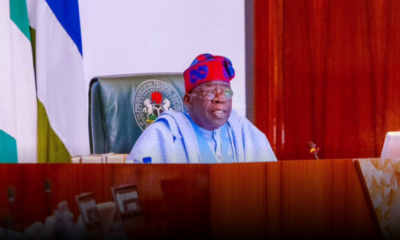- Spain Tops Nigeria’s Export Destinations In Q3
- China Dominates Nigeria’s Import Landscape In Q3
The National Bureau of Statistics (NBS) says Nigeria recorded a N3.5 trillion trade surplus between January and September of 2023.
This was made known by NBS in its foreign trade report for the third quarter (Q3) of 2023 on Monday.
In the nine months of the year, according to the bureau, Nigeria’s exports totalled N23.3 trillion and total imports stood at N19.7 trillion, which gives a trade surplus of N3.5 trillion.
A trade surplus is an economic indicator of a positive trade balance in which the exports of a nation outweigh its imports.
On foreign trade for Q1 2023, NBS said total exports were N6.49 trillion, and imports value was N5.56 trillion.
The nation’s total trade was N12.05 trillion in Q1, higher than the value (N7.86 trillion) recorded in the corresponding period (Q1) of 2022.
In Q2 2023, the country’s entire trade stood at N12.16 trillion, with total exports at N6.44 trillion and imports amounting to N5.73 trillion.
In Q3 2023, there was an improvement as the total trade stood at N18.80 trillion, with exports and imports totalling N10.35 trillion and N8.46 trillion respectively.
“Nigeria’s total trade in the third quarter of 2023 stood at ₦18,804.29 billion. Exports were valued at ₦10,346.60 billion while total imports stood at ₦8,457.68 billion,” the report reads.
“Total exports increased by 60.78% compared to the amount recorded in the second quarter of 2023 (₦6,435.13 billion) as well as by 74.36% compared to the corresponding quarter in 2022 (₦5,934.15 billion).
“Similarly, total imports increased by 47.70% compared to the value recorded in the second quarter of 2023 (₦5,726.25billion) and by 33.33% when compared to the value recorded in the corresponding quarter of 2022 (₦6,343.53 billion).”
- Spain Tops Nigeria’s Export Destinations In Q3
Nigeria’s export landscape underwent a significant shift in the third quarter of 2023, with Spain emerging as the country’s top export destination, accounting for a remarkable 12.31 percent of total exports, valued at N1.27 trillion.
This was followed by India with N1.02 billion (9.81 percent), Netherlands with N988.66 billion (9.56 percent), Indonesia with N758.59 billion (7.33 percent) and France with N720.45 billion (6.96 percent) of total exports.
These five countries collectively accounted for 45.98 percent of Nigeria’s total exports, demonstrating the country’s growing presence in diverse global markets.
Analysis by TheCable Index shows that despite the diversification of export destinations, petroleum oils and oils obtained from bituminous minerals, crude, remained Nigeria’s primary export product, accounting for an impressive 82.50 percent (N8.54 trillion) of total exports.
However, natural gas, liquefied, and urea, whether or not in aqueous solution, also emerged as significant export earners, contributing 9.82 percent (N1.02 trillion) and 1.06 percent (N109.68 billion), respectively, to the overall export value.
- China Dominates Nigeria’s Import Landscape In Q3
The NBS report shows that China maintained its position as Nigeria’s top import partner in the third quarter of 2023, accounting for a significant 23.33 percent of total imports.
“Data on Imports in the third quarter of 2023 reveals that the top five partner countries of origin for imports to Nigeria was China (₦1,973.34 billion or 23.33%), this was followed by imports from Belgium with ₦996.65 billion or 11.78%, India with ₦802.07 billion or 9.48%, Malta with ₦561.37 billion or 6.64% and the United States of America with ₦502.92 billion or 5.95% of total imports,” NBS said.
“The values of imports from the top five countries amounted to ₦4,836.36 billion representing a share of 57.18% of total imports.
“The commodities with the largest values of imported products were ‘Motor Spirit Ordinary’ valued at ₦1,921.03 billion or 22.71%.”
Also included are gas oil worth N736.66 billion or 8.71 percent and durum wheat (not in seeds), valued at N331.76 billion or 3.92 percent of total imports.

 BIG STORY3 days ago
BIG STORY3 days ago
 BIG STORY5 days ago
BIG STORY5 days ago
 BIG STORY4 days ago
BIG STORY4 days ago
 BIG STORY5 days ago
BIG STORY5 days ago
 BIG STORY1 day ago
BIG STORY1 day ago
 BIG STORY4 days ago
BIG STORY4 days ago
 BIG STORY2 days ago
BIG STORY2 days ago
 BIG STORY3 days ago
BIG STORY3 days ago






















